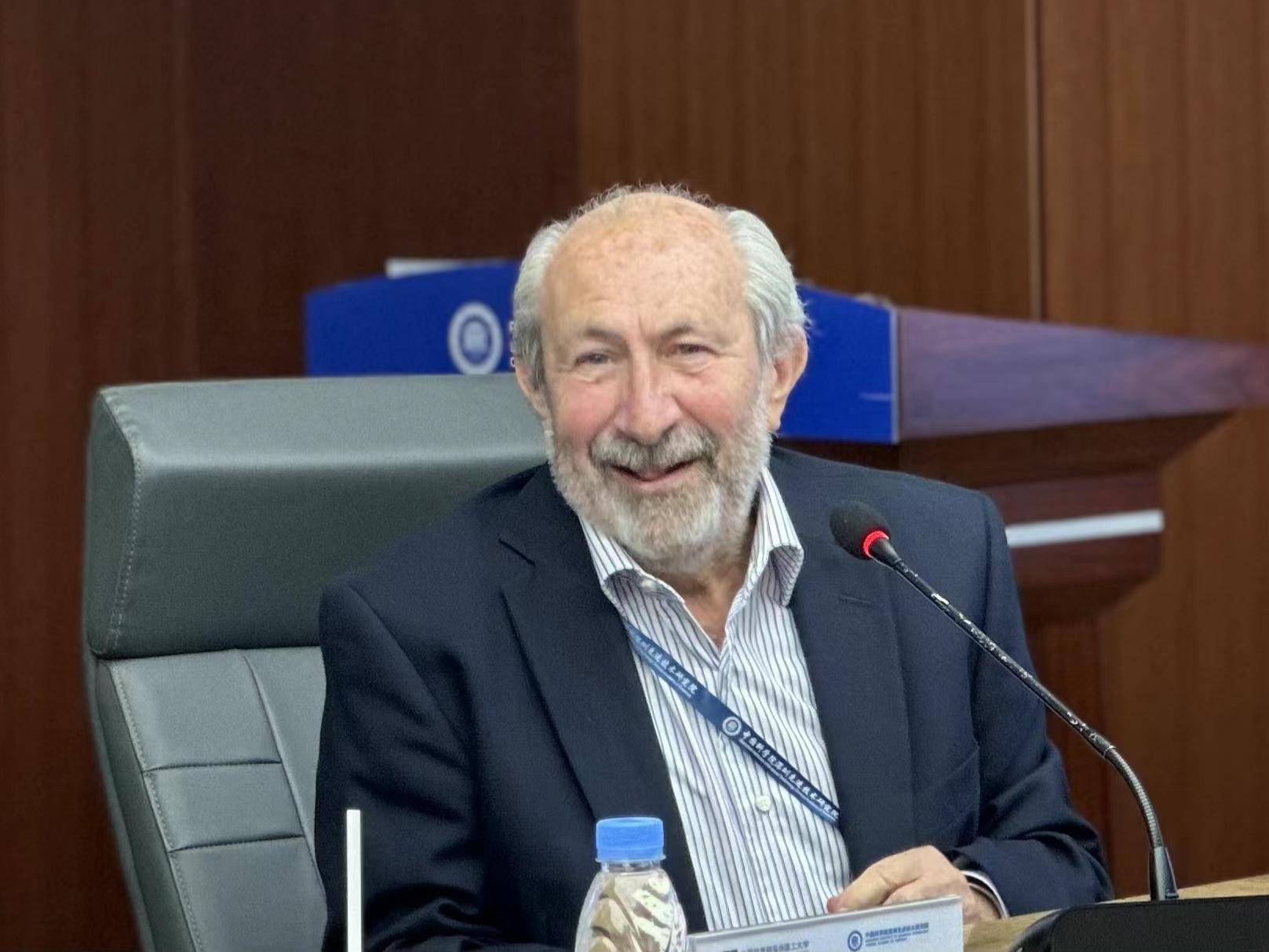Making Science More Popular

Professor Aldo Tagliabue. (COURTESY PHOTO)
By?LONG?Yun?&?BI?Weizi
Aldo Tagliabue is an Italian scientist who has made significant contributions to the field of immunology and vaccine research. He has been employed at the Shenzhen Institute of Advanced Technology (SIAT) since 2021, having previously worked in Korea and collaborated with scientists from Fudan University before being formally invited to China.
Long illustrious career
Tagliabue told Science and Technology Daily recently that the development of vaccines is a team effort, and he feels fortunate to have worked with excellent colleagues.
As the chief scientist of the Laboratory of Inflammation and Vaccines of SIAT, he has 40 years of experience in his field. Tagliabue has played a key role in developing several vaccines, including an oral vaccine against typhoid fever, a vaccine against pertussis (whooping cough), and vaccines against meningococcal B. These vaccines have had a significant impact on the healthcare industry and have saved countless lives.
Tagliabue is optimistic about the future of vaccine research and is confident that science will continue to innovate and find solutions to the world's most pressing health problems.
In recent years, infectious diseases have gained worldwide attention due to the COVID-19 pandemic. Tagliabue noted that infectious diseases were often overlooked before this pandemic. From his perspective, infectious diseases are mainly problems pertaining to developing countries and the people living in these countries. However, COVID-19 has shown that a global pandemic can have far-reaching consequences and that infectious diseases are a concern for everyone.
Power of international cooperation
Tagliabue said that the development of COVID-19 vaccines in less than a year is a significant achievement for science. He believes that the success of these vaccines is a testament to the power of international collaboration and innovation.
In his view, international cooperation plays an important role in scientific research. He said that exchange programs are a critical aspect of international cooperation, enabling scientists from different cultures to come together and share their knowledge and experience to achieve the best results.
At the same time, Tagliabue emphasized international cooperation is essential for the advancement of science and human health, such as jointly testing the efficacy of vaccines.
Furthermore, he acknowledged the challenges posed by infectious diseases and how they affect human health and the environment in the long term. Therefore, he said that international cooperation plays an essential role in combating these infections, noting that scientists should work together to find solutions that benefit all humans, irrespective of their cultural or geographical background.
Rewarding experience of China
According to Tagliabue, China is a country that has made remarkable progress in science and innovation in the last two decades.
He applauded the role of the Chinese government who planned in advance to govern a country with a large population effectively. China is a significant player in the changing global landscape, he said.
His decision to work in China was influenced by his interest in traveling and collaborating with scientists around the world, particularly in Asia, and he was motivated when he saw an opportunity to interact with young scientists in China and build new projects together. China's investment in research and innovation was another factor that attracted Tagliabue to the country.
While understanding the cultural differences between the West and China, he believes it was an opportunity to learn and grow, and he therefore encouraged young people from the Western world to come and work in China, learn Chinese, and collaborate with young Chinese scientists.
Being prepared for future changes
According to Tagliabue, it is essential for society to be aware of the importance of science and innovation. Scientists have a duty to explain the significance of their work to the public, he said, adding that the need for scientists to connect with the public demonstrates that they are ordinary people with unique jobs.
Tagliabue does, however, have concerns about sci-tech information sharing. According to him, the ease at which information can be shared via social media also gives rise to the wide circulation of misinformation. "It is vital to provide accurate and understandable information to ensure that the public understands scientific advancements correctly," he said.
He also encourages young people to be aware of the constant changes in science and innovation. With the rapid pace of technological advancement, it is crucial to make future generations informed and prepared to deal with the changes.
Overall, Tagliabue's views underscore the importance of science outreach activities in creating an informed and engaged public.
???
This article is also contributed by ZHANG Xiaomin from SIAT.







